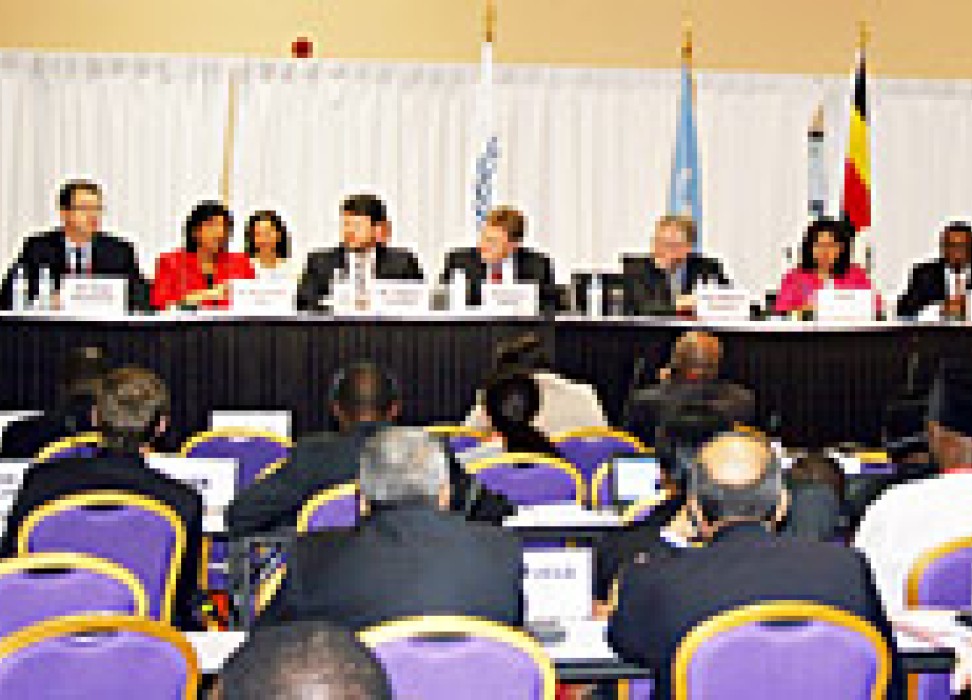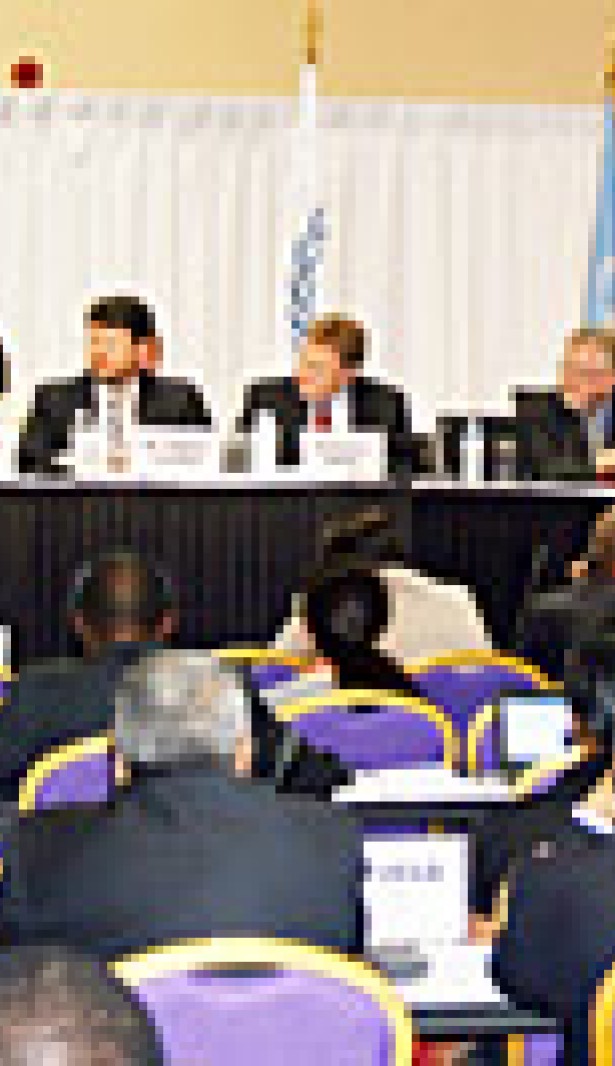Pillay addresses ICC Review Conference panel
04 июня 2010

The UN High Commissioner for Human Rights Navi Pillay told delegates and fellow panelists taking part in a 3 June discussion on the Rome Statute’s core principle of ‘complementarity’ that she was offering OHCHR’s expertise to States in order to plug “impunity gaps.”
Navi Pillay was speaking at the Rome Statute Review Conference taking place near the Ugandan capital Kampala, where she was a member of a panel of international legal experts discussing, in front of a packed audience of State delegates, international organizations and civil society organizations, the Rome Statute’s key concept that the International Criminal Court (ICC) exists to complement, not replace, national justice systems.
Pillay told the audience that it was part of OHCHR’s mandate to help in capacity building and that “in cases in which particular States are unable to investigate and prosecute violations, due to lack of capacity, OHCHR stands willing, ready and able to assist [them] to build capacity in the justice sector, in order to enable them to ensure that impunity – and impunity gaps – do not exist.”
The Rome Statute, which governs the International Criminal Court and came into force in 2002, makes it clear that the Court will only admit cases if national justice systems are unable or unwilling to carry out proceedings themselves.
Pillay noted that “it is important that considerations of inability should not be allowed to dominate the discourse on why States do not deliver on their part of the bargain of complementarity.”
“We must acknowledge,” she continued, “that in some cases States have made a deliberate choice to permit the reign of impunity, because of an unwillingness to investigate or prosecute gross violations of human rights that amount to violations of international criminal law.”
In such cases, she said, “I will intercede with them to get them to step up to their responsibilities. Failing that, I shall raise concerns about the situation. And I shall keep up the pressure and encourage States to do the right thing to prevent impunity.”
Pillay also raised a number of other complex issues related to complementarity, including a note of caution regarding the policy of prosecuting only ‘the most responsible’ for the crimes of genocide, crimes against humanity and war crimes.
“It is important not to allow the ‘most responsible’ policy of the Office of the Prosecutor (OTP) to be taken by States as a signal to prosecute only some and not all,” she said. “There may be a problem with a situation in which States see their obligations in complementarity with the ICC to be limited by what the OTP is doing. We do not want to see a matching policy [at the national level] of prosecuting only ‘the most responsible’.”
The panel on complementarity was one of four thematic panels on key subjects being held during the Review Conference which is running from 31 May to 11 June. The other panellists were the Prosecutor of the International Criminal Tribunal for the Former Yugoslavia, Mr. Serge Brammertz; the Head of the Special War Crimes Division of the High Court of Uganda, the Hon. Justice Akiiki Kiiza; the Kinshasa Deputy Auditor General of the Democratic Republic of the Congo, Colonel Muntazini Mukimapa Toussaint; the Director of UNDP’s Democratic Governance Group, Ms. Geraldine Fraser-Moleketi; and the European Commission’s Deputy Director-General for External Relations, Mr. Karel Kovanda. The panel was moderated by Professor William Schabas, and also heard statements from the President of the ICC, Judge Sang-Hyun Song and the ICC Prosecutor Mr. Luis Moreno-Ocampo.
See the full text of the High Commissioner's keynote speech
4 June 2010

Страница доступна на: